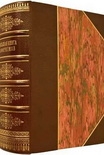Loverly:The Life and Times of My Fair Lady (Broadway Legacies) by McHugh, Dominic (best ereader for pc .TXT) 📗

Book online «Loverly:The Life and Times of My Fair Lady (Broadway Legacies) by McHugh, Dominic (best ereader for pc .TXT) 📗». Author McHugh, Dominic
GEOFFREY BLOCK
Series Editor, Broadway Legacies
PREFACE AND ACKNOWLEDGMENTS
If there’s one musical that deserves to be assessed in a series titled Broadway Legacies, it’s surely My Fair Lady. From the moment of its premiere, critics and audiences alike took the show to their hearts and embraced its wit, its sense of drama, its poignancy, its vivid characters, and its tremendous score. It belongs to a select group of musicals that can truly be said to be artistic landmarks in the genre—a category that also includes shows like Jerome Kern and Oscar Hammerstein II’s Show Boat, Richard Rodgers and Hammerstein’s Oklahoma!, Leonard Bernstein and Stephen Sondheim’s West Side Story, and Sondheim’s Company—as well as enjoying outstanding commercial success (its original Broadway run lasted 2,717 performances).
Yet to date, My Fair Lady has been the subject of comparatively little scholarly literature, and its composer and lyricist have been similarly marginalized. The only book dealing with their entire output is Gene Lees’s Inventing Champagne: The Musical Worlds of Lerner and Loewe, which broke new ground in establishing a text on one of Broadway’s most important partnerships. However, its reliance on gossip and hearsay, its absence of any musical illustration or analysis, and the decision not to cite sources for the information contained in the book, render it sometimes unreliable. Keith Garebian’s The Making of My Fair Lady similarly makes some useful observations and is a fine introduction to the show for general readers, but it is inadequately annotated for scholarly purposes. Gerald Harold Weissman’s 1957 dissertation “The Musicalization of Pygmalion into My Fair Lady” (master’s thesis, Stanford University, 1957) benefited from input from Lerner, who allowed the author to see an early outline of the show, but the critical discussion is largely limited to how Shaw’s play was adapted into a musical. The only substantive studies of the show are a single chapter each in Joseph Swain’s The Broadway Musical (New York, 1990) and Geoffrey Block’s Enchanted Evenings (Oxford, 1997; rev. ed. 2008), both of which offer original views on the show. In particular, Block’s account is the first to make full use of Loewe’s autograph manuscripts (housed at the Library of Congress), while Swain provides a personal analysis of the score and libretto. But because both of these are single chapters in larger books on the genre as a whole, there is an understandable limit to the amount of space that Block and Swain can devote to the show.
When I began my research in this field, it was not difficult for me to decide to focus on this undoubted masterpiece (not least because it has always been my favorite musical). The real question was how to go about it. We are fortunate in recent years to have seen a steady increase in the amount of quality scholarship on the Broadway musical available in print. Alongside Block’s seminal Enchanted Evenings, the books that have most guided me on my way include Stephen Banfield’s Sondheim’s Broadway Musicals, a magisterial study of the work of perhaps the most influential composer and lyricist of the past forty years; James Leve’s volume on Kander and Ebb in the excellent Yale Broadway Masters series; and three books that focus on a single musical each—Tim Carter’s Oklahoma!: The Making of an American Musical, Jim Lovensheimer’s South Pacific: Paradise Rewritten, and bruce d. mcclung’s Lady in the Dark: Biography of a Musical. Although the individuality of each of these authors takes their work in different directions, what they share is a seriousness of purpose that shows itself through the depth of research informing their every word. Naturally, the specific focus of Carter, Lovensheimer, and mcclung’s wonderful volumes on one show made them especially valuable models for me to use.
One of the trickiest aspects of dealing with a much-loved show like My Fair Lady is that almost everyone seems to have a story to tell about it. In contrast to the surprising dearth of scholarly literature on such a widely admired show, there is a huge amount of gossip attached to it. I quickly realized that not all of it can be proven to be true, however, so in chapters 1 and 2 I try to describe the background to the musical’s genesis from scratch. The foundation of my revised account lies in several hundred unpublished





Comments (0)